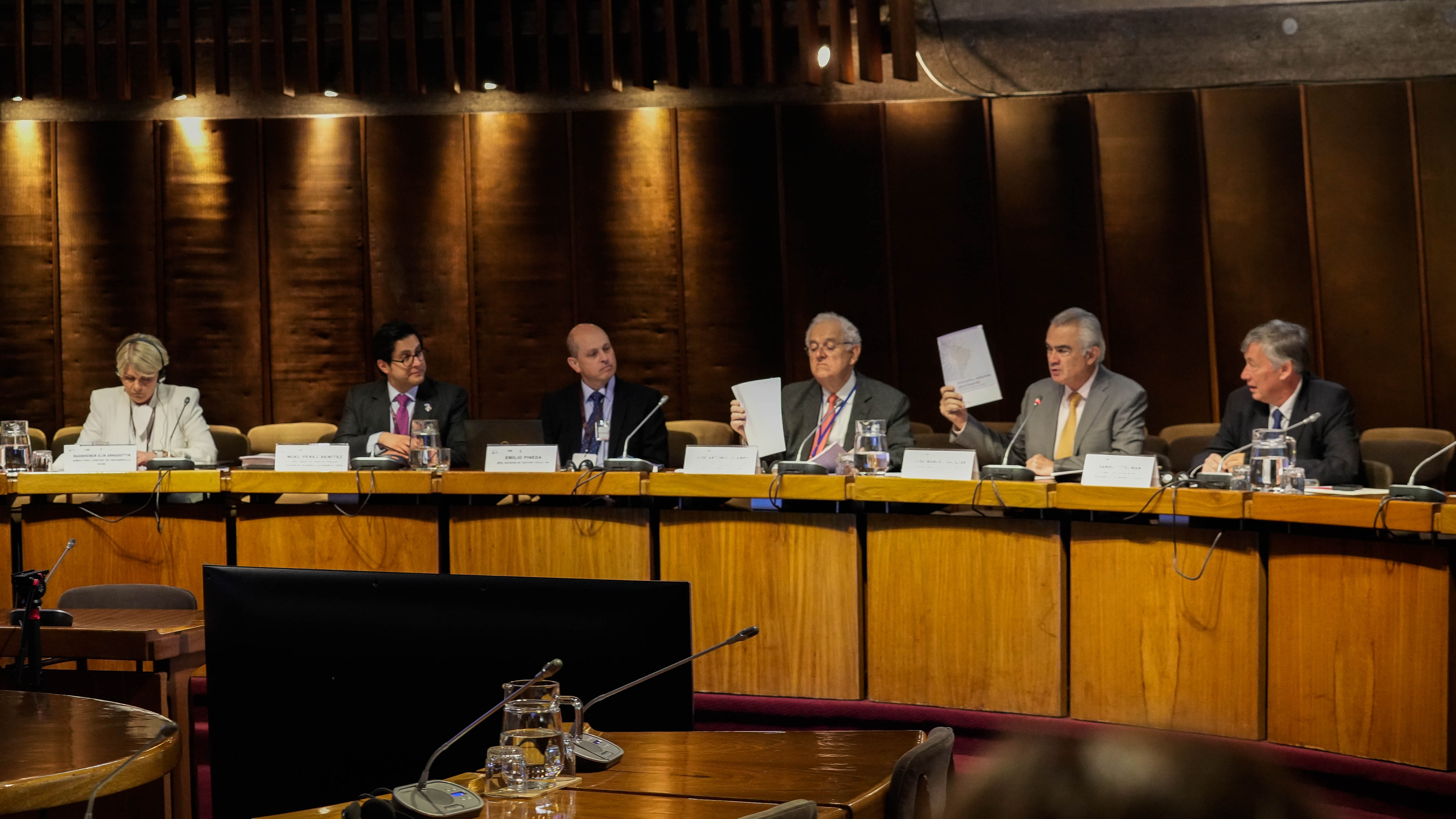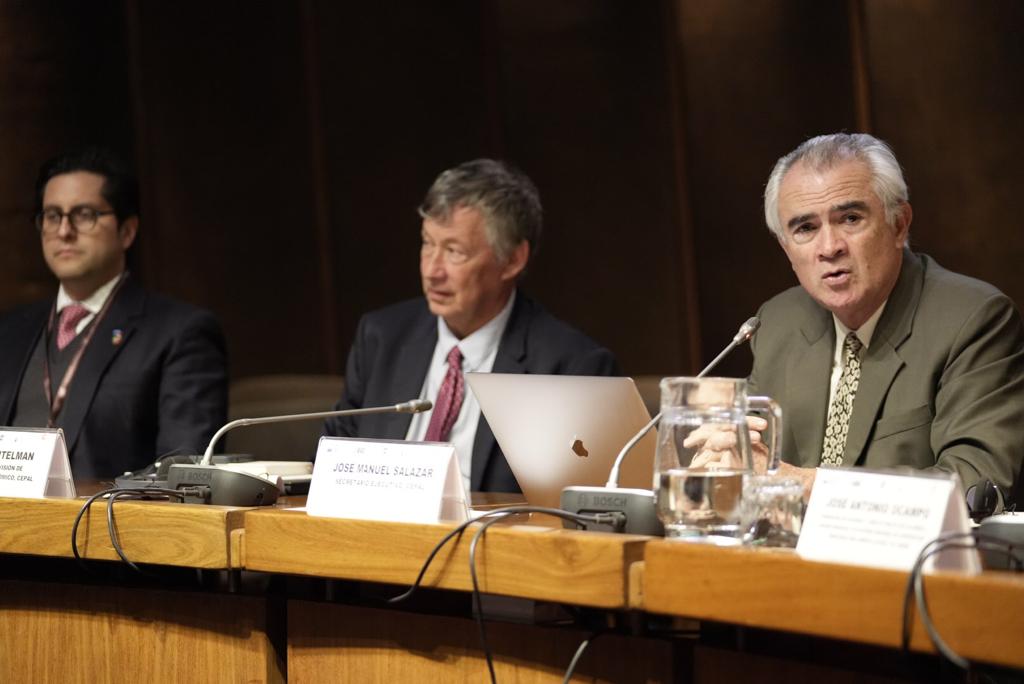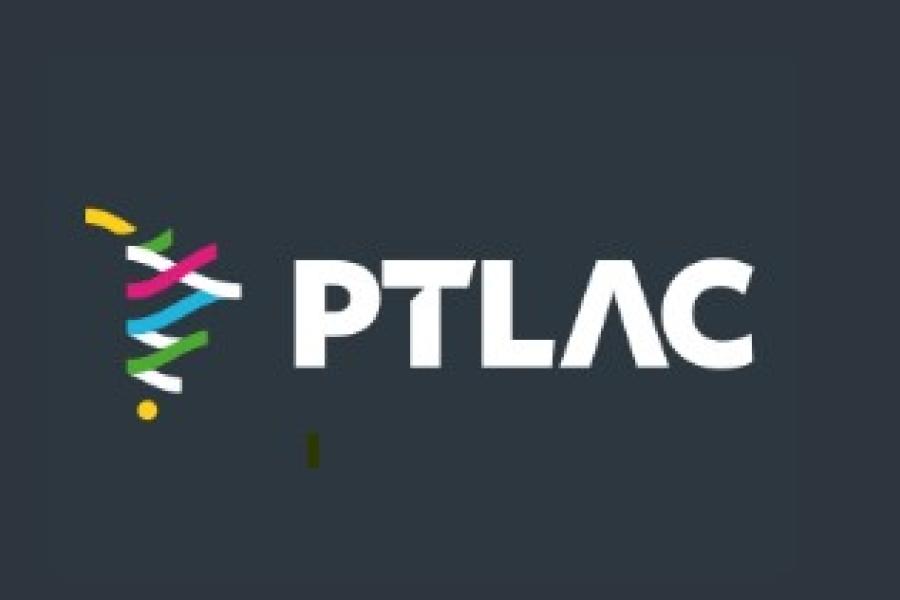Reducing Constraints on Growth and Development Imposed by Debt Service is Essential for Fiscal Policy Favorable to Economic and Social Development
Work area(s)
The XXXV Regional Seminar on Fiscal Policy began at ECLAC headquarters in Santiago, Chile, with the participation of authorities from the Ministries of Finance of 14 Latin American and Caribbean countries.

The XXXV Regional Seminar on Fiscal Policy, a traditional meeting that brings together authorities, experts, civil society and academia to discuss the fiscal policy challenges faced by the countries of the region, began at the headquarters of the Economic Commission for Latin America and the Caribbean (ECLAC) in Santiago, Chile.
Within the framework of the seminar, on Tuesday, May 16 ECLAC Executive Secretary José Manuel Salazar-Xirinachs presented the report Public Debt and Development Distress in Latin America and the Caribbean, which analyzes the constraints on growth and development caused by public debt and its implications for fiscal policy in Latin American and Caribbean countries.
According to the United Nations regional organization high official, the increase in debt service, especially due to increased interest payments, is forcing countries to allocate more and more public resources to guarantee debt sustainability. As in previous episodes of rising interest rates, this means reductions in public investment and social spending, generating a vicious circle as these are necessary to promote inclusive, sustained and sustainable growth, not only to stabilize the debt trajectory, but also to progress towards the achievement of the SDGs, said Salazar-Xirinachs.
According to the report, the increase in debt levels in the region, combined with complex macro-financial conditions, is an urgent call to expand financing and transform the international sovereign debt architecture to offer countries financing options that are in line with inclusive and sustainable development. In this regard, the document calls for the search for ways to reduce the costs of indebtedness, create a global financial safety net, and move towards a new institutional framework for sovereign debt restructuring.
The XXXV Regional Seminar on Fiscal Policy was attended by authorities from the Ministries of Finance of 14 countries in the region, who were presented with the proposal for a regional fiscal cooperation platform promoted by Colombia, Chile and Brazil, with the support of ECLAC as Technical Secretariat. This platform, which was very well received by the authorities present, seeks to be a regional space for constructing fiscal approaches that promote inclusive, equitable and sustainable policy at the global level.
The seminar also presented the Fiscal Panorama of Latin America and the Caribbean 2023, an annual report in which ECLAC urges fiscal policy to promote growth, redistribution and productive transformation in Latin America and the Caribbean. This report analyzes the fiscal policy performance of the region's countries in 2022. It also examines the evolution of personal income tax in the countries and the dynamics of public spending linked to gender, indigenous peoples, Afro-descendants and people with disabilities.
The Seminar was inaugurated on Monday, May 15 by José Manuel Salazar-Xirinachs, Executive Secretary of ECLAC, with the participation of the Inter-American Development Bank (IDB), the Inter-American Center of Tax Administrations (CIAT), the International Monetary Fund (IMF) and the Organization for Economic Cooperation and Development (OECD), as well as specialists from academia and non-governmental organizations. The meeting is sponsored by the Spanish Agency for International Development Cooperation (AECID).
The report Revenue Statistics in Latin America and the Caribbean 2023, a joint publication by ECLAC, the OECD Centre for Tax Policy and Administration, the OECD Development Centre, the Inter-American Center of Tax Administrations (CIAT) and the IDB, was also presented at the XXXV Fiscal Seminar.
Related content
Deuda pública y restricciones para el desarrollo en América Latina y el Caribe
Presentación de José Manuel Salazar-Xirinachs, Secretario Ejecutivo de la CEPAL.
Inauguración del XXXV Seminario Regional de Política Fiscal
Palabras de inauguración de José Manuel Salazar-Xirinachs, Secretario Ejecutivo de la CEPAL.

Fiscal Policy should Foster the Transformation of Development Models, Including Aspects of Growth and the Reduction of Inequalities
ECLAC Executive Secretary, José Manuel Salazar-Xirinachs, presented the conclusions of the XXXV Regional Seminar on Fiscal Policy, which ended at the organization's headquarters in Santiago, Chile.

XXXV Regional Seminar on Fiscal Policy
The XXXV Regional Seminar on Fiscal Policy is organized by the Executive Secretary of the Economic Commission for Latin America and the Caribbean (ECLAC), through the Economic Development Division…
Related link(s)
Country(ies)
- Latin America and the Caribbean
Related project(s)
Contact
Public Information Unit
- prensa@cepal.org
- (56 2) 2210 2040
